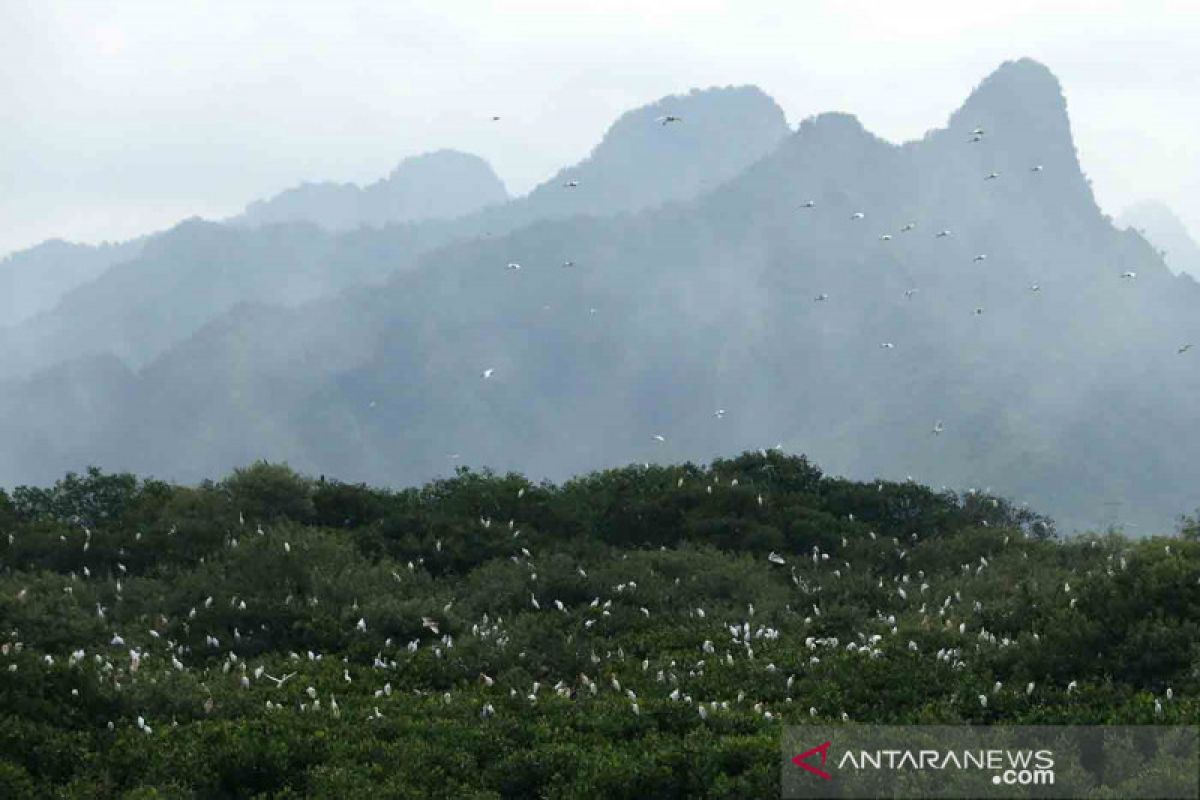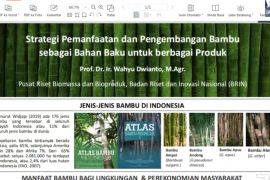A sacred forest, formed by a small lot of forest with endemic vegetation (and) protected traditionally by a local community, is a unique and significant example of an in-situ biodiversity conservation effortJakarta (ANTARA) - The designation of sacred forests by local communities is a good example of local wisdom practice that has positive effects on efforts to conserve plants and prevent their extinction.
The remarks were made by a researcher from the Plant Conservation, National Parks, and Forestry Research Center of the National Research and Innovation Agency (BRIN), Ni Kadek Erosi Undaharta, in conversation with ANTARA here on Tuesday.
"A sacred forest, formed by a small lot of forest with endemic vegetation (and) protected traditionally by a local community, is a unique and significant example of an in-situ biodiversity conservation effort," she said.
Related news: Indonesia needs clear policies on nuclear energy development: BRIN
Given their relatively small coverage, sacred forests would be vulnerable if the cultural values that protect the forests continue to erode, she added.
The BRIN researcher then expressed the hope that on this year's World Environment Day, social-based natural conservation efforts would be introduced to the young generation to ensure conservation efforts through the veneration of forests continue.
Undaharta pointed out that the Balinese are among the societies in Indonesia that have distinct cultural values which respect plants and environmental sustainability.
In Bali, the management of sacred forests -- and further, plant conservation -- has been established under customary law, locally known as awig-awig, she said.
Residents are allowed to utilize plants within venerated forests only after holding a ritual at a temple close to the forests. Some plants are even marked to be used for only religious ritual or medical care purposes, significantly restricting their harnessing, the expert noted.
Related news: Bolstering community crucial in supporting marine preservation: BRIN
Sacred forests were established under local wisdom and customary laws long before the government established the relevant laws on forest management, Undaharta pointed out.
As residents have conserved plants through the imposition of customary values for long, the diversity of plants in the forests has been protected from various threats, including overexploitation that can lead to their extinction, she said.
The BRIN expert also highlighted that cooperation between the local community and stakeholders is necessary for preserving plant diversity in sacred forests to advance natural protection through science and technology implementation.
Related news: G20 offers momentum for Indonesia to gain global trust: VP
Related news: Level 1 PPKM enforced nationwide except in Teluk Bintuni: Ministry
Translator: Martha HS, Nabil Ihsan
Editor: Fardah Assegaf
Copyright © ANTARA 2022












